The World Nomads Podcast: Finland
Tips for shooting the Aurora - Nudity and sauna etiquette - Plus camping and hiking in pristine forests.
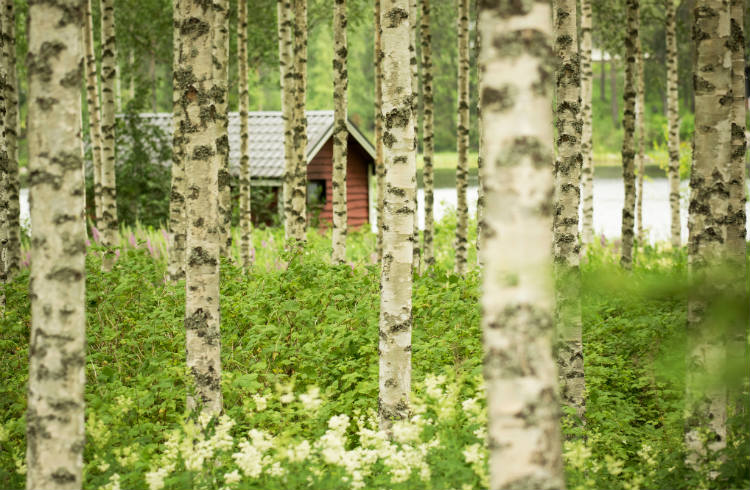 Photo © iStock.com/pexl66
Photo © iStock.com/pexl66
Listen Now
The World Nomads Podcast: Finland
In this episode, we explore sauna etiquette in Finland, tips for shooting the northern lights and how not to destroy your iPhone plus the truth behind those IKEA furniture names.
Want to read personal, inspiring and engaging stories about travel? Go here.
What's in the Episode
01:16 Welcome
02.09 Quiz Question
02:20 Sudeshna Ghosh “…it's very cold. And that's where planning is really important because this isn't a trip you can do on a whim.”
13.24 Kristen Addis “…They had even a sauna gondola at the one and only ski area up there. So I went and did that, and that was a cool experience, it's a huge part of the culture, and I can understand why. It gets so cold there in the winter.”
21:54 Tracey Nesbitt and the Solo Travel Awards
27:50 Travel News
34.00 Maddie Clarey “…I think the Swedish people are the ones who are most specifically in Scandinavia who are like, no, Finland's not Scandinavia. Scandinavia ends at Sweden. They're something else. And the Finnish people are like, can we come to lunch too?”
42:00 Finnish Fun Facts
43:19 Quiz Question answer
44:20 What’s in the next episode
Who's On the Show
Sudeshna Ghosh is an editor and travel journalist who has written an article for World Nomads on Travel to Finland in Winter
You can follow Sudeshna @travelnowworld on Facebook and travelnow_world on Twitter and Instagram
Maddie Cleary is anthropology graduate on an ethnographic expedition around the globe and has written an article titled The Naked Fins exploring Finland’s sauna culture.
Tracey Nesbitt runs Solo Traveler and is one of the judges of the Solo Travel Awards sponsored by World Nomads.
Want some tips on being a female solo traveler? Then follow Kristen Addis’ blog. She has spent five years traveling the globe almost entirely on her own.
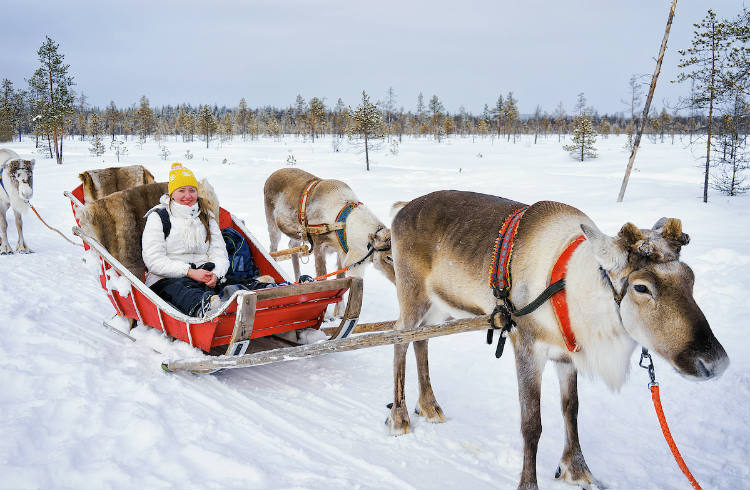
Resources & Links
For tips on photographing the Northern Lights click here, or download this guide as an infographic.
Check out this article highlighting 12 Surprising Things In Which Finland Is The Best In The World
Scholarships Newsletter: Sign up for scholarships news and see what opportunities are live here.
Want to Re-publish This Episode?
Copy this code onto your web page or blog:
<iframe width="100%" height="200" src="https://player.whooshkaa.com/player/episode/id/250490?visual=true&sharing=true" frameborder="0" style="width: 100%; height: 200px"></iframe>
Want to Talk to us?
We want to hear from you! If you have any travel insurance questions to Ask Phil, want to give us feedback on the episode, or have suggestions for topics you'd like us to cover, email us at podcast@worldnomads.com
Sign up for Podcast News
Explore your boundaries and discover your next adventure with The World Nomads Podcast. Hosted by Podcast Producer Kim Napier and World Nomads Phil Sylvester, each episode will take you around the world with insights into destinations from travelers and experts. They’ll share the latest in travel news, answer your travel questions and fill you in on what World Nomads is up to, including the latest scholarships and guides. The World Nomads Podcast is not your usual travel Podcast. It’s everything for the adventurous, independent traveler. Don’t miss out. Subscribe today.
Next episode: Amazing Nomad Tim Jarvis
About World Nomads & The Podcast
Explore your boundaries and discover your next adventure with The World Nomads Podcast. Hosted by Podcast Producer Kim Napier and World Nomads Phil Sylvester, each episode will take you around the world with insights into destinations from travelers and experts. They’ll share the latest in travel news, answer your travel questions and fill you in on what World Nomads is up to, including the latest scholarships and guides.
World Nomads is a fast-growing online travel company that provides inspiration, advice, safety tips and specialized travel insurance for independent, volunteer and student travelers traveling and studying most anywhere in the world. Our online global travel insurance covers travelers from more than 135 countries and allows you to buy and claim online, 24/7, even while already traveling.
The World Nomads Podcast is not your usual travel Podcast. It’s everything for the adventurous, independent traveler. Don’t miss out. Subscribe today.
Speaker 1: Welcome to the World Nomads podcast, delivered by World Nomads, the travel lifestyle, and insurance brand.
Speaker 2: There's something about the islands here that touches people's souls.
Speaker 3: Hopefully we make an impact in the world that people will stop killing and culling sharks.
Speaker 4: It looked like snot and it smelled bad, but don't let that put you off. It's good for you.
Speaker 5: Where else in the word you're going to see the condor three meters right in front of you?
Phil: No, absolutely.
Kim: I'm not sure if I want to see the condor three meters in front of me.
Speaker 8: So many things in our society that are throw away, and we see those things on our beaches, on our coastlines.
Speaker 9: Has anyone ever pooped themselves?
Speaker 10: Sometimes the Germans can come off as cold.
Speaker 11: I think it's important to remember what has happened, but also look forward into the future and be positive about it, and that's, I think, what Germans are.
Kim: It offers travelers the opportunity to teach English to children, and experience the Pana ... Oh, that's going to-
Phil: Speaking of teaching English.
Kim: I've got to learn to speak it.
Phil: We were all told that you can't take a leak into the river. You can't urinate into the river because there's a parasite that will swim up your urine stream.
Speaker 12: Phil. You-
Speaker 1: It's not your usual travel podcast. It's everything for the adventurous, independent traveler.
Kim: Yes, thanks for tuning in, and Phil, this episode, we're off to Finland.
Phil:01:21 Finland, Finland. The country I'd quite like to be. The country has a land border with Sweden to the northwest, Norway to the north, and Russia to the east. But this episode, we learn about Finland's little brother complex that it feels with Sweden.
Kim:01:36 Plus, their love of saunas, capturing the stunning Northern Lights, and traveling solo. So, who's in the episode? Did I hear you ask that?
Phil: I'm asking that, yes.
Kim: Who's in the episode?
Phil:[crosstalk 00:01:47].
Kim: Sudeshna has written a story for World Nomads for Finland in winter, and will share her experiences. Kristin is a solo female travel. Geez, she packed a lot into a week in Finland, didn't she? And Maddie, she talks stripping down and experiencing a sauna, Finnish style. But kicking off, what's your quiz question for this episode
Phil: All right, I've hinted at geographical bent already. But of all the countries with which Finland shares a border, which is the longest? Which is the longest border?
Kim:02:20 Phil, Sudeshna is a World Nomads contributor. She has written for us a story on Finland in winter, and when you think of Finland, you associate it with winter, don't you?
Phil: That's what you're looking at, yup.
Kim: At Sudeshna, it was a bucket list place for you and your partner to go to Finland, and in particular, see the Northern Lights. Did you achieve it? Were you able to tick it off?
Sudeshna: Absolutely, it was an incredible trip. And yeah, we were very lucky. I think the first night that we went up north to Lapland, we got to see the Northern Lights, and we got to see it a couple of times during our trip, so short answer, yes. And it was incredible.
Phil: I was going to say, is it as amazing as people say? It's one of those things ... It's like fireworks on TV. It's nothing like what it is in real life, yes?
Sudeshna: 03:06 Yeah, I think exactly right. A lot of times when you tend to have high expectations from an experience, you feel underwhelmed when you're actually doing it. But this is, I think, every bit as beautiful and mindblowing as it appears to be. I think there's something about ... The fireworks analogy is great, actually, because it is literally like a fireworks show in the sky, but it's natural. And I think there's something very surreal about it. It's magical. So I really feel like this is one of those things that you have to see to believe, as cliché as that sounds. And when you do experience it, it's like a pinch me a moment. So highly recommend.
Kim:04:03 I grew up in Tasmania, next to Antarctica, so I have seen the Aurora Australis, which is the Southern Lights, on a regular basis. When I first saw it-
Sudeshna: Wow.
Kim:... driving across the bridge home from work, the sky was green, and I literally thought we were being taken over by aliens. It was like something had just come over us.
Phil: And it kind of wraps around you.
Kim: It's spectacular. It really is.
Phil: I really want to see it.
Kim: Yeah, well, you need to go to-
Sudeshna: You're so lucky, that's next on my list.
Kim: Yeah, and we would see it regularly.
Phil: You can stop at Kim's place.
Kim: Yeah, exactly, I've got a place down there you can stay in. So that sounds beautiful. And look, was it cold? Bitterly cold?
Sudeshna: It was. I mean obviously, you expect it to be cold. And this is March, so springtime elsewhere in the world I guess, in the northern hemisphere. But honestly, meters of snow, and even when we landed in the capital city, which is south of the Arctic circle, nothing prepares you for how cold it can get, seriously. So yeah, it's very cold. And that's where planning is really important because this isn't a trip you can do on a whim. You've really got to work it out and plan where you stay, et cetera, but a lot of the resorts there ... So the slightly higher-rent ones, but again, pricing, there's [inaudible 00:05:35]. They provide you with a lot of ski gear, so outerwear, boots, that kind of thing, which definitely helps. But you have to be prepared to wear many layers of the warmest clothes you can get your hands on.
Kim: Now, speaking of accommodation, you've actually slept in a glass igloo.
Sudeshna: Yes, that's right. So we were staying at the Kakslauttanen Arctic Resort, which is I think the first glass igloo resort in Finland, or in the world even, perhaps. And now there's quite a few, and obviously, it's splashed all over social media. But yeah, it's pretty special. Mind you, though, the igloos, the actual igloos, they can be quite small and functional, let's say. But yeah, there's something about lying there on the bed and staring up at the sky. We didn't get to see the Northern Lights from the igloo, but many people have.
Phil: That's just too much.
Kim: Honestly. You would just be loving yourself sick if you had those experiences. That is fascinating. Now, the thing about World Nomads, too, is we like the idea of getting off the beaten track, and you did exactly that with some sort of snow safari.
Sudeshna: Well yeah, so again, what happened in this region is that activities for travelers are fairly standardized. You have your dog sledding, you have your snowmobiles everybody uses, and that's the main means of transport for people there because literally, you're ... Like I said, meters of snow, as far as the eye can see. There's really no other way of traveling other than horses and reindeers, of course. So yeah, snowmobile safaris, et cetera, are fairly standard.
Sudeshna: But one thing we got to do ... So just to provide some context, we were based in the Inari-Saariselkä region, which is pretty much as far up north as you can go in Finland, in terms of being fairly close to an airport and civilization and that kind of thing. The really intrepid could, obviously, venture out to camp out in the snow further north, I guess. But anyway, so in this region, there's this snow tank safari that this one particular guy runs, which was really cool. Basically, it's a massive army tank that he's repurposed into a recreational vehicle.
Sudeshna: And what it does is it gets ... Because it's this big, powerful monster, it really takes you off the beaten track and into forests and really further afield than you could probably go in any other vehicle, which means you just get a lot better access to getting to see the Northern Lights, because the key to that is to be away from light pollution. So the closer you are to towns and civilization and that kind of thing, the chances of seeing the lights are lower. Because the lights are on constantly. They run all year round, even. But you need clear, dark sky.
Kim: No pollution.
Sudeshna: Exactly. And that's why the snow tank safari is pretty cool. And yeah, there's something about driving around in a tank, isn't there?
Phil: You wish you could have it in traffic at home, I'm pretty sure.
Sudeshna: Yes.
Phil: We've got an article on World Nomads about how to shoot the Northern Lights. And I found, when I was reading that, there is a website called Aurora Forecast, and they will tell you ... There's a thing called Kp-index, [inaudible 00:09:34], index. Zero meaning unlikely to be any Borealis, and 10 being it's going to blow your socks off.
Kim: Get out, yeah.
Phil: Yeah. So they say you can check that before you go. And obviously, the further south you go, the higher the Kp index needs to be to be able to see them. So if you're in those very extreme northern parts of Finland, you'll see them when the Kp index is just above zero, when it's from one and what have you.
Kim: So this is something we can share in show notes?
Phil: We can share it in show notes. So fantastic contribution from a professional photographer on how to shoot the Northern Lights.
Kim: Sudeshna, did you get some good shots yourself?
Sudeshna: That's a great question. Just about the indexing thing that you were talking about, Phil. I just wanted to make a point that there are actually quite a few websites that do this kind of Aurora Borealis forecasting, which is great. In fact, hotels and resorts there tend to have a Northern Lights calling system, where if you want and you're in bed, and if the lights are spotted, they'll give you a quick call and then you jump out and rush to wherever.
Sudeshna: But you've got to temper that with the fact that usually, for people traveling from overseas, you've only got a limited number of days there. And then I think what tends to happen is ... A lot of times, people travel there ... They'll probably spend five, six days, a week, and not gotten to see it even once. So a lot of it is down to luck, but there are some ways that you can plan ahead in terms of timing, that are worth thinking about when you're actually planning the trip. I've actually got a little blog post about it that I can share the link with you guys later.
Sudeshna: So about photography. There's another interesting thing we found. You can see the lights a lot clearer through the lens of a camera than you can with your own eyes. For whatever reason. I'm not a great photographer. So the pictures that you see on social media, et cetera, other people's pictures, whatever, it actually ... The vibrancy of the colors and all of that are a lot richer in photographs. But regardless, just seeing it live is, of course, an incredible experience. So yeah, we did get some good shots.
Kim: Sounds absolutely fantastic. We will share your story in show notes, which also features reindeers and dog-sledding with huskies, Phil. But we're going to be touching on that a little later in the episode when we catch up with Kristin.
Sudeshna: Sorry to interrupt. One point I really want to make is, obviously, a lot of people carry iPhones or mobile phones for photographs, as did we. It is so cold that the phones actually freeze up and die. That's what happened to me the first time. So a good tip is to keep your phone really close to your body when you're traveling around in the snowmobile or whatever. If you're outdoors, obviously. So that it gets that warmth and stays on. Otherwise, you could be in a situation where you're out there and you're trying to capture a photograph, and your equipment isn't working. That's a disaster, I think.
Kim: That is one of the best tips I think I've been given.
Phil: That's one of the best tips. Make it back to the glass igloo with an iPhone frozen to your ear.
Sudeshna: Exactly.
Kim: Thank you for being part of the podcast.
Sudeshna: Hey, no worries.
Kim: Now, coming up in the podcast, Phil, we're going to be chatting, as we mentioned at the top of the episode, one of the judges for the Solo Traveler Awards. So it kind of makes sense, in this podcast on Finland, to chat to Kristin. She's an award-winning expert on solo female travel. She's traveled the world alone, hitchhiked ... Believe it or not, hitchhiked across China.
Phil: What?
Kim: Yes. She's
Phil: Okay.
Kim: And she's also been to Finland. Welcome to the podcast, Kristin.
Kristin: Thanks for having me, guys.
Kim: It's an absolute pleasure. So, solo traveler. In your blog, which is Be My Travel Muse.com, which we'll share in the show notes, you say that you'd never had a trust fund. So how long have you been traveling, and why on your own, and how are you funding it?
Kristin: It's been about six years now, and the reason why I started on my own was just that no one else was at a point in their lives where they could just join me for a long-term trip. So I started to realize that I would have to go alone if I was going to go at all, or I might just be waiting forever. So that is what inspired it. And as far as funding it, I now fund it through my blog and social media channels. So it's been really wonderful, being able to build this passion into a way of life and career.
Kim: Works the same here at World Nomads, Phil. Turning your passion-
Phil: Into a profession. That's it.
Kim: That's exactly what you've done. So tell us, how long did you spend in Finland?
Kristin: I was in Finland for about a week. I was up in Lapland in ... Let's see, I think it was February. Right in the middle of winter.
Phil: I was going to say, that must have been pretty cold.
Kristin: You know, it wasn't so bad. I've actually been in worse. But it's all about what you wear, right? There's no such thing as bad weather, just bad outfit choices.
Kim: Yeah, we know about that. Phil's wearing a purple jumper today, but it suits him. It suits him.
Phil: At least you didn't say lavender.
Kim: No, this is not lavender. Lapland. What can you tell us about Lapland?
Kristin: Oh, it's just magical. You've got ice hotels and reindeer safaris, and dog-sledding, and also, they say, where Santa Claus lives, so I went and visited him while I was there as well.
Kim: And what did you ask for for Christmas?
Phil: More travel life. You did all of those things. Let's start with the ice hotel, 'cause that fascinates me because I'm not great with cold, as you may have guessed already because of my purple jumper.
Kim: Yeah, and it's about 18 degrees, Kristin, here in Sydney at World Nomad's headquarters.
Phil: How was it in the ice hotel?
Kristin: I just visited to walk around it and take a look. I didn't actually stay there for the night. But they have really thick, furry blankets. Sauna is a huge thing in Finland, so you've always got that as an option as well. You can sweat it out and then dunk it in a hole cut out of the ice in a lake or something like that. I did that, too. It was crazy.
Kim: Now, how does a sauna work with an ice hotel? Saunas are all designed to-
Phil: It gets lower and lower and lower.
Kim: Exactly. Does the ice hotel ... Will it start melting?
Kristin: No, they can't really have it in the ice hotel. Maybe that's something you need to do first and then you can go hang out in the ice hotel. There's a lot of them up there. It just depends on which little town you're in. I visited two.
Kim: So speaking of saunas, there are almost as many saunas in Finland as there are people. Did you feel that, even in Lapland?
Kristin: They had even a sauna gondola at the one and only ski area up there. So I went and did that, and that was a cool experience, but yeah, it's a huge part of the culture, and I can understand why. It gets so cold there in the winter, and it's wonderful to alternate between the extreme heat of the sauna and then dunking into the water. I really had to be talked into it, but now it's something that I do of my own volition all the time.
Phil: I've actually been to Helsinki. I haven't explored much of Finland. I was in Helsinki for a few days. And I noticed how many saunas there were there. There was one on every floor of the hotel. And I went up to the old Olympic games swimming pool. I think in '56 or something, they had the Olympic games there. Summer games, so it was an outdoor pool. I was there in summer. But there was a sauna inside the change rooms as well. I found the sauna etiquette a little bit confronting, Kristin. 'Cause everybody's getting in the nude pretty quick.
Kim: The nude.
Phil: And I found it a little ... How did you cope with it?
Kristin: Actually, this is really common in Berlin, Germany, where I base myself as well. So nudity is not super common in the States, but in Europe, it's a lot more free, and I actually think it's a beautiful thing. I thought it would be weird, but I actually like how relaxed everyone is about it. Not making it a big deal.
Kim: And there's a whole list of etiquette, which we'll share in show notes, but things like, you can't discuss your political persuasions, you can't discuss your religion. They've got a list of things that you actually-
Phil: A sauna is a safe place.
Kim: A sauna is a safe place, yeah. Did you experience those rules or are they written up somewhere for you?
Kristin: Ideally, people just don't talk at all in the sauna.
Phil: Well, you're nude, for a start. So. Don't have to strike up a conversation.
Kim: Awkward. Look, I've just noticed that mole on your ...
Kristin: Yeah, you should get that checked out.
Kim: Yeah, you should get that checked out. Now, I'd like to touch on those two other activities that you chatted about. The dog sledding and the reindeer-
Phil: Reindeer safari.
Kim:... safari. Ethically, dog-sledding. Would you have to pick a company that treat their ... Obviously, you would have to pick a company that treats their dogs right.
Phil: How do you do that? How did you pick your company?
Kristin: For the most part, these guys look at their dogs as family. And I know that there was some really horrifying news out of Canada a few years ago, and I think that's given the whole industry a somewhat bad name, but you talk to the people in the area who have dogs, and it's their whole lives. It's what consumes them. And so it's pretty easy to see that the people really do care for the dogs when they show up there. And the dogs are dying to run. They cannot wait. It's just what they want to do so badly. I mean, these are huskies. Anyone who knows huskies knows they want to run.
Kim: So is it cool then, in a reindeer park in the middle of winter ... To me, with your Santa Claus reference, it's just a storybook that's coming to life. Did it feel like that for you?
Kristin: A little bit. Reindeer is actually a hugely important animal to the people up in Lapland, historically and still. So they will let their animals be free range when the trees and berries are in bloom so that they can go eat and eat the moss and all of that kind of thing. But the fur and the meat is a huge part of survival up there, and so even now, you'll see a lot of menus and salmon and things like that. It's up to each individual, but I don't actually even eat meat, and I feel fine about the dog-sledding 'cause I can just see that that's what they want to do.
Kim: We'll share your website, your blog, BeMyTravelMuse.com, which will have details on books that Kristin's also written. Where are you off to next?
Kristin: I'm actually sitting in Bali airport now. And I'm heading back to Berlin for about a month.
Kim: Yeah, I wouldn't mind your lifestyle.
Phil: Yeah, that sounds all right, actually. I'll swap you.
Kim: Are there tips on the site how you can achieve this kind of dream for yourself?
Kristin: Yeah, I talk a lot about solo female travel, so the idea is, I just want to make it accessible for anyone to do if they really want to go travel and they're finding that they don't really have someone who wants to go with them, or they're getting used to the idea of, oh, maybe I should do this by myself. I just want to make it all very easy and accessible. So that's what my site is oriented around, and the books that you mentioned as well.
Kim: Well, you packed a lot into your week in Finland. Thank you so much for chatting
Phil: Good having you, Kristin.
Kristin: Thanks for having me, guys.
Kim: Now, Phil, we interview a lot of solo travelers as part of the World Nomads podcast, and in fact, we, as in World Nomads, are the sponsors of the Solo Traveler Awards. In the last 10 years, there's been a big uptick in the number of companies that are offering tours and packages for solo travelers. So these awards are currently being judged, and Tracey Nesbitt is one of the judges.
Phil: Hi, Tracey.
Tracey N: Hi.
Phil: You work at Solo Traveler, so you've got a finger on the pulse of the growth in solo travel. But why did you think an awards process was necessary?
Tracey N: Well, we started ... We just launched this last year, and there were two reasons for it, really. One is to really recognize and reward companies who are treating solo travelers well. And the other is really just to encourage more companies to do the same. So we hear from readers every day about their frustration about being charged a single supplement when they travel alone, and we know that the numbers of solo travelers are increasing, so we see it as the golden opportunity for the travel industry, so we're trying to draw attention to the market.
Kim: So it's actually a growing market.
Tracey N: The biggest bee in their bonnet is the single supplement. So they're offended by it. They feel they're being penalized for traveling on their own.
Phil: And how much ... What's the worst you've heard?
Tracey N: Anywhere from 10 to 100 percent or more. I actually read, in a ... I believe it was a British newspaper about someone who had been charged 115 percent. I don't think that's common, but 100 percent is quite common.
Phil: So you could have taken a friend and it would have been cheaper.
Tracey N: Yes. In fact, I think that's what the person in the article was saying, that they would just buy two tickets and not bring the other person.
Kim: So it's almost a form of discrimination, isn't it?
Tracey N: I think that's the way that it's seen by solo travelers, yes. Because I think that less and less in society, things are based on two people. There's more ... A greater emphasis on independence, and so it's striking, then, when someone tries to book travel and comes up against this double occupancy thing.
Phil: Can I just be devil's advocate for awhile? You're a travel provider, and you're trying to keep your head above water, you're trying to maximize your profits. If you've got a cabin on a cruise that's got two beds in it that you could fill, why is that discrimination?
Tracey N: I think in that case, what they're hoping to do is make money off the second person buying drinks, right? And spending money outside of the cost of the package. But there are a lot of rooms that go empty that could be filled ... You could be getting the money for having a single person in there rather than it going empty altogether.
Kim: Okay, so there are deterrents. But why, again, is it on the rise?
Tracey N: I think it's on the rise for a few reasons. I think demographics have changed. Lifestyles have changed. And travel has become easier. So in terms of demographics, I can mostly speak for Canada and the US, this is the first time in history where single people have made up the majority of the population. So in Canada, for instance, the most recent numbers we have are that the number of one-person households has surpassed all other types of living situations here. So 28 percent of Canadian households have just one person. So we're at a unique time in history, I think.
Tracey N: Lifestyle changes as well. People are marrying later, having children later. I think as I was saying before about independence, I think it's become more valued over time. But also that couples will also travel independently of each other at least some of the time. It's not ... In my parents' generation, they would never have thought of traveling alone, without one another. But that's very different today.
Kim: You're a solo traveler yourself, and I don't know, it's probably a personal question to ask whether you live on your own or not. But you do do a lot of solo travel. What have been your experiences?
Tracey N: Solo travel has been really great for me. I discovered ... On the first international trip that I took, I went with a friend. We didn't really know each other very well. And I discovered on that very first trip that may be traveling on my own was going to be something to try. But I've really had really wonderful experiences, some of them that you're more likely to have on your own than with others. Because if you're traveling with other people, you're engaged in a relationship with those people, and you're experiencing things together and talking to each other. But when you're on your own, you're more open to conversation with new people. And you're more present or in the moment and aware of your surroundings. So it's a bit of a different thing.
Tracey N: I think some of the best times I've had traveling on my own have actually been when I've gotten lost. It's really ... The great thing about traveling solo is that you can have a plan, or you can not have a plan, or you can make a plan and not stick to it. Really that ability to be spontaneous and to stumble upon something really interesting and then completely change what you're going to do, it's very easy when you're by yourself.
Kim: Thanks Tracey, and good luck to all those solo travel companies that have entered. Now, Phil, I've already shared my fun fact on the ration of saunas to people in Finland. The stats are 3.3 million for 5.3 million people, to be exact. And I will have more Finnish facts to share before the end of the episode. But, what's making travel news?
Phil: Travel to New Zealand is burning with visits to the nation, up by 30 percent in the past three years. 3.8 million visitors landed last year, in effect doubling the population. The population is only just over four million for New Zealand.
Kim: So what's been the attraction?
Phil: Well, it's beautiful, isn't it?
Kim: Obviously.
Phil: All the hiking, all the natural wonders, all that pure wilderness that you can get involved in.
Kim: I've been three times, but only to the south island. I've never been to the north island.
Phil: Okay.
Kim: You think you-
Phil: There are the really wild bits in the south.
Kim: Yeah. Beautiful stuff.
Phil: But you've got all Coromandels and everything in the north, right?
Kim: Yeah, but I've always gone in winter, and-
Phil: Okay. [crosstalk 00:28:31]
Kim: Yeah, you've got to experience it. It's stunning.
Phil: Anyway, so because of this boom, the government, whose prime minister, by the way, has just given birth to a baby girl-
Kim: Congrats.
Phil: in the last couple days. Nice. I'm not sure how she's going to manage that and run a country, but-
Kim: Are you serious?
Phil: Oh come on.
Kim: That is the most sexist thing I've heard anyone
Phil: Okay. I apologize. But surely, you've got enough in the first couple of weeks.
Kim: So a woman has a baby and they can't work, they can't do anything?
Phil: No, no, no, no. But it's just going to be pretty full on, isn't it?
Kim: Nannies?
Phil: Can we re-do this section? 'Cause I am backtracking so fast now.
Kim: Even you've got a nanny and you're a man.
Phil: Okay. All right. I apologize. No, you're right.
Kim: Apology accepted.
Phil: All right, anyway, there's been lots of complaints that all these beautiful hiking tracks are being overcrowded, and there's been litter left around as well. Come on, take it with you, people. So they're going to build more of these facilities and do some environmental protection stuff. But this means international arrivals will be paying for it. Roughly 25 US dollars for a tourist tax every time they enter, from mid-2019. The Australians, the most common visitor, the most ... More Australians than any other nationality go there. And of course, some South Pacific island nations, they're exempt. But everybody else is stumping up 25 bucks. What do you think? You think that's all right? As the government says, it's only fair that they pay a little bit their fair share, or are they already bringing in millions and millions of dollars, which is enough of a fair share?
Kim: Putting a tax on protecting the environment, it says something, doesn't it? When I visit New Zealand, I'm an international visitor. I would expect to pay the same 25 dollars.
Phil: You're happy with paying an extra 25 [crosstalk 00:30:21]
Kim: If it protects the tracks and it protects ... Picks up the litter and does all that sort of stuff, absolutely. Would you?
Phil: Yeah, I don't mind it actually, but I'm just wondering ... The counterargument is that people go and they take lots of money in and contribute millions to the economy anyway, so why do we have to bung an extra tax on top? It's just the lazy government, isn't it?
Kim: I'll counterargument your counterargument. You've already got the money.
Phil: Fair enough. Okay. Well, what are your thoughts? Give us an email, podcast@worldnomads.com. A volcano on the Galapagos Island in Ecuador has erupted, spewing lava into the sea ... Why do volcanoes spew? Why don't they just pour? Anyway, so it spewed lava into the seas, as well as gas and smoke being thrown three kilometers into the air. The volcano is on the island of Fernandina, which is not the inhabited islands. It's an uninhabited island, and it's been going off a little bit since about 2009, but this is a really big eruption. The Galapagos National Park authority says there are no plans to go and evacuate animals from the island, they're okay. But winds have carried the volcano ash west as far as Guam in the western Pacific.
Kim: What else you got?
Phil: Okay, Bangkok's tourist police have rounded up more than a hundred people in one of the biggest operations targeting tourist scammers. Police hit the busy tourist sites around the grand palace, which are notorious for these crooks, arresting a bunch of [inaudible 00:31:51] vendors, tuk-tuk and taxi drivers for allegedly hassling the tourists. Reports say they reacted to a recent surge in complaints from tourists over being lured to overpriced shots or bait and switch tactics for river cruise trips, perpetrated by tuk-tuk drivers, which we all know about.
Phil: Stricter rules about what can be carried on board US flights, with the TSA banning powders greater than 12 ounces. That's about 350 grams. It's quite a lot. 350 grams, that's quite a big tub of powder.
Kim: Do people still use powder?
Phil: It's not just talcum powder, but cosmetic powders as well. So Marie Antoinette's going to be in trouble. But protein powders as well. So any sort of powdery substance got more than 12 US ounces, which is about 350 grams, put it in your checked luggage because it's going to get stopped from going on board if you put it in your carry-on. And British Airways is warning of a summer of misery for the UK, for inbound travelers, as the queues at Heathrow's passport control grow once again. This was happening last year, it's on again. The airline says of peak times, arriving passengers can spend two and a half hours in the queue.
Kim: They've got to come up with a more efficient way to move the people.
Phil: That's longer than some of the flights to get there from Europe.
Kim: You've got to come up with a more efficient way of dealing with that.
Phil: So I went to Fiji with my family a few years ago, when the kids were quite small. And that is an absolute ... It's like a sheep farm, trying to get you through a gate there. But they got these guys walking around, if they see a family with small children, they take you to the front of the line.
Kim: I've also done the wheelchair trick. Even though I had to-
Phil: Hang on, wait a minute, I get bashed up for being sexist.
Kim: Sorry. Kim, you must remember, if you're going to have a go at somebody-
Phil: You gotta be squeaky clean.
Kim: Exactly.
Phil: All right, that's my news.
Kim: Thanks for that.
Kim: When someone writes an article titled, The Naked Fins, and you're doing a podcast on Finland, you have to track this person down. Welcome, Maddie, to the podcast.
Maddie: Thank you. Hello.
Kim: Nudity. Finnish ... We've touched on it in this podcast, that there are almost as many saunas as people in Finland, and they do it in the nude. Tell us more. In the nude. In the been in the ... Phil says nude.
Phil: Nude.
Kim: Nude.
Phil: International podcast. Naked.
Kim: Naked. They do it naked, sorry.
Maddie:34:26Yes. No, they just really like being naked. They sauna with their parents and family friends up until the age of 14 completely naked. Even older, for some people. And it's just a bit weird.
Kim: I'm glad you said that, because from let's say age 10 to 14, when you're developing, the last thing you want to do is be nude with your parents.
Maddie: Yeah, right? Or your great uncle Bernie who was at the barbecue when you were born or whatever. It just doesn't make any sense.
Phil: Yeah, but look, we're putting our own cultural values on it here. As I mentioned, I was in Helsinki once for about a week, and yeah, they do love
Maddie: Good on them for being confident and being able to do this. And I guess that does feed into their culture a lot. They are more confident people, and they don't really talk that much. But good on you.
Phil: What else did you notice about the Finnish culture and about the Finnish attitude to life?
Maddie: The thing that struck me the most about the Finnish people is they're just so calm and so peaceful. I went up into the forests in Finland, and it's just a whole other world up there. And they take nature so seriously that it's so calming on who you are as a person.
Phil: I was reading the other day that they have plans to make Helsinki car-free within about the next five years or something like that, with on-demand public transport and a proper bicycle networking system. Which will reduce the amount of traffic in Helsinki? But Finns are very reluctant to get rid of their private vehicles because everybody owns a cottage out in the forest somewhere, and they always like to go away.
Maddie: Yeah, you go there on a weekend and there's just no one in Helsinki. They've all left for the weekend to go to the forests. But I think that's common across most of Scandinavia. They're all about energy saving and renewables and all that, but at the same time, they're like, we need our really big cars to go into the mountains.
Kim: But you also say, Maddie, or Madison, that they don't really ... The Finns don't really fit into the Scandinavian way of life?
Maddie: Yeah, so they're a little bit more ... If you take two northern European groups, so Scandinavians and the Baltics, the Scandinavians are very sleek and stylish and just IKEA and everything's black and white and gray and super streamlined and efficient and just all of that stuff. And then you've got the Baltics, who are just super colorful and super loud and just everything's passionate, and they're all a bit artsy and a bit hipster.
Maddie: Finland exists in between those two circles. So Finland is a bit crazy. They have that weird up and down language that makes everybody laugh, and they have a really good sense of humor and their cities are quite colorful and quite ... But they're also, yeah, we're Scandinavians. Yeah, we're part of Scandinavia. We're not part of the Baltics. And then they do have that
Phil: But is there not some sort of ... A little bit of friction with the Swedes, though?
Maddie: Yeah, because ... I think a lot of the Scandinavians countries were at some point controlled by Sweden. They were a bit of the stronger power in that region for a very long time, and Sweden controlled pretty much all of Finland, and then into the Baltics as well. They always got along with Norway, but they also controlled a lot of Denmark as well, and so a lot of the flooring options at IKEA have Danish names to remind the Danish people that the Swedish people have walked over them throughout.
Kim: Wow.
Maddie: inaudible 00:39:21] the Swedish people.
Phil: There I was, just shopping, and I didn't know I was part of a culture war.
Maddie: Yes. You're a part of this now. And yeah, so the Swedish people
Kim: What do you mean by jabbers?
Maddie: Like they have these little jabs at everyone. They have flooring options named after Danish countries. I think their chairs are named after Norwegian places because they just sit on the Norwegians or something. The Norwegians prop them up.
Kim: We sit on you.
Maddie: Yeah, it's just bizarre. But I think the Swedish people are the ones who are most specifically in Scandinavia who are like, no, Finland's not Scandinavia. Scandinavia ends at Sweden. They're something else. And the Finnish people are like, can we come to lunch too? And the Swedish are like, no. Go sit somewhere else.
Phil: So if you go to Helsinki, don't play any ABBA songs, is that right?
Maddie: Yeah. Yeah. And if you want to make friends with Scandinavians, do not let them know that you think Finland is awesome.
Kim: Oh wow, we're getting some tips in this chat, I tell you. Speaking of chats, you mentioned that they don't talk a lot, but then you went on to say they've got a great sense of humor.
Maddie: Yeah, so if you get them drunk, they chat a lot. They have a bit of a shell, but once you break into it ... You have to work a little bit to build up a rapport with them, but once you do, they come out with just these one-liners that you are taken aback by at first, but they're very hilarious.
Kim: So you reckon it's a 10 out of 10 places to visit?
Maddie: I do. I do. I met a lot of people who ... I went from Finland over into the rest of Scandinavia, and a lot of people in Denmark and Sweden and Norway, other travelers I was meeting, were like, "I didn't get over to Finland, didn't get over there. It's not really somewhere I thought of going." And I don't understand. This is awesome. It was so much fun. Just completely absurd. Just basically a living Wes Anderson movie. That kind of absurdity in this country, but just so whimsical and so fun.
Kim: Well, thanks for that insight. That's excellent, and we'll share that story in our show notes, titled The Naked Finns. Maddie, thank you very much.
Maddie: Awesome. Thank you.
Kim: So how's that, Phil? We stumbled on a cultural war.
Phil: That's amazing, I didn't know. Carpets. Everything Danish is a carpet.
Kim: I love the chair. We sit on you.
Phil: I'm going to go and check the names there. I'll find out about that.
Kim: Okay.
Phil: There you go.
Kim: Will you report back?
Phil: I'll report back.
Kim: Well, I promised I had more Finnish fun facts to share with you, and they are from an article, which we'll share in show notes that elaborate on each one. So I'll keep them short. But did you know, Finland has the heaviest metal bands per capita? Yup, Sweden, and Norway have only 27 heavy metal bands per one hundred thousand people. Finland boasts double as much. 54 bands per one hundred thousand people.
Phil: Take that, Sweden.
Kim: Take that. And apparently, the heavy metal is all over the radio as well, so it's not just a live bands thing. It has the least corrupt government in the world. The best education system. Apparently, the best place for a woman to have a baby, too, speaking of Jacinda Ardern. The heaviest coffee consumption. Finnish people also consume a liter of milk a day per person, which is the most in the world. And Finland makes the best mobile phone games in the world, just like Angry Birds. Super popular.
Phil: Oh, I'm going to have to go and play a game now.
Kim: Do you play it?
Phil: I have played it, yes.
Kim: Have you really?
Phil: I
Kim: You're such a kid.
Phil: It's killing a bit of time. All right, now let's answer the quiz question. Of all the countries with which Finland shares a border, which is the longest? Russia, of course. And they fought a war with Russia. The Winter War, they call it, in 1939- 40. And then sided with Nazi Germany for the next couple of years to continue the fight. Imagine hating somebody more than you hate Nazis.
Kim: Not sure what to say.
Phil: Well, that's what. Because then when ... For the last two years of the second world war, though, they turned against Nazi Germany and fought against Nazi Germany.
Kim: All right, that wraps up our podcast on Finland, but a reminder, Phil. We're now weekly.
Phil: That's right. We've launched our amazing Nomads bonus episode, say that quickly. So make sure you check out the fearless Sarah Davies from last week, as she prepares to paddle the length of the Nile. And tune in next week to hear real-life explorer ... Now, this bloke really is an explorer. Tim Jarvis.
Kim: Yeah, Phil's chat with Tim next week. But in our next destination podcast, we'll take you to Chile. And a reminder, you can access the World Nomads podcast on Stitcher, Google Play, iHeartRadio, and iTunes, where you can rate, share, and subscribe.
Phil: And can I just also say, on the new Google podcast app.
Kim: Good stuff. Bye.
Phil: Bye.
Speaker 1: The World Nomads podcast. Explore your boundaries.
Related articles
Simple and flexible travel insurance
You can buy at home or while traveling, and claim online from anywhere in the world. With 150+ adventure activities covered and 24/7 emergency assistance.
Get a quote



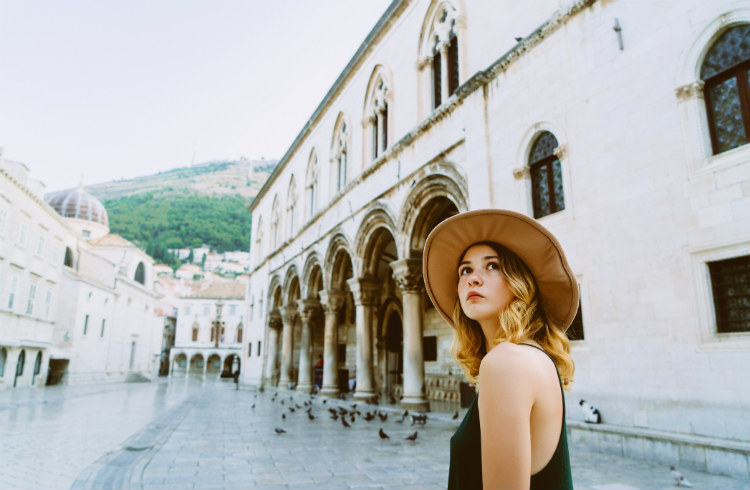
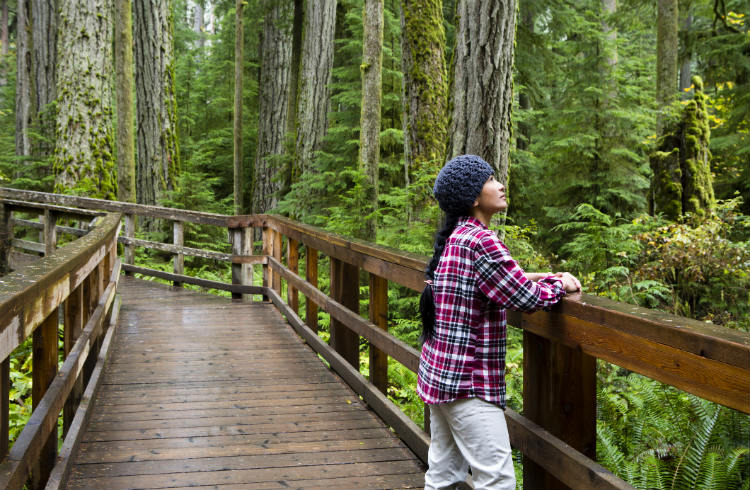
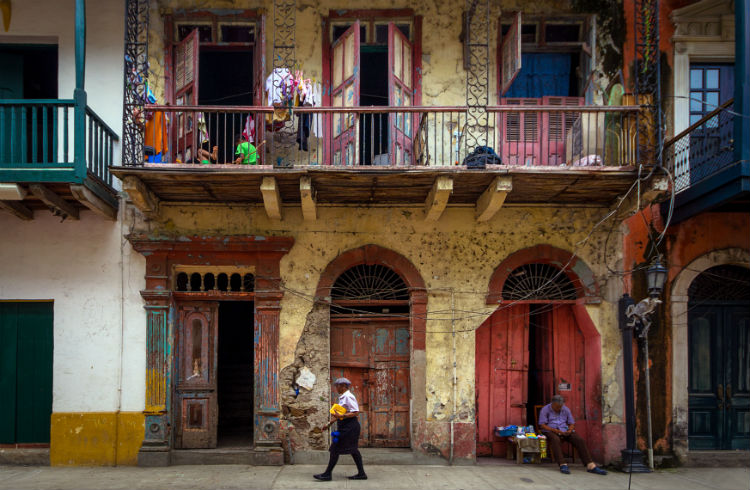
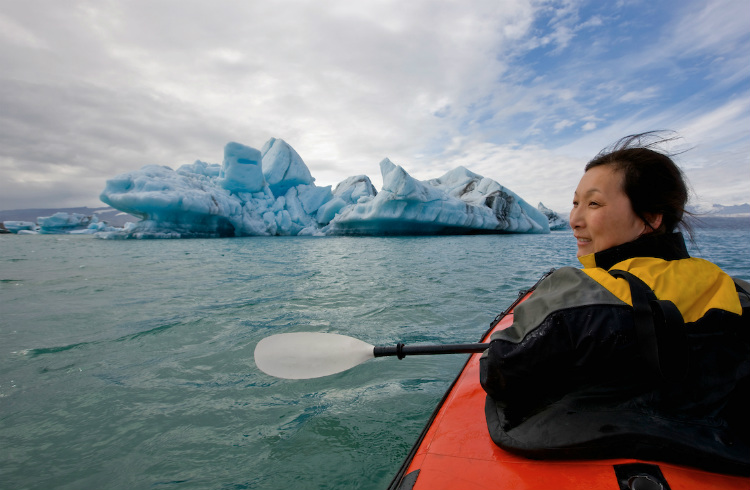
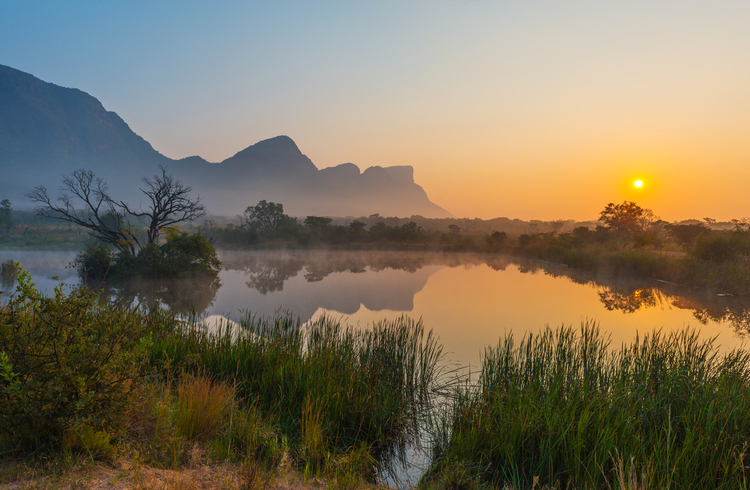
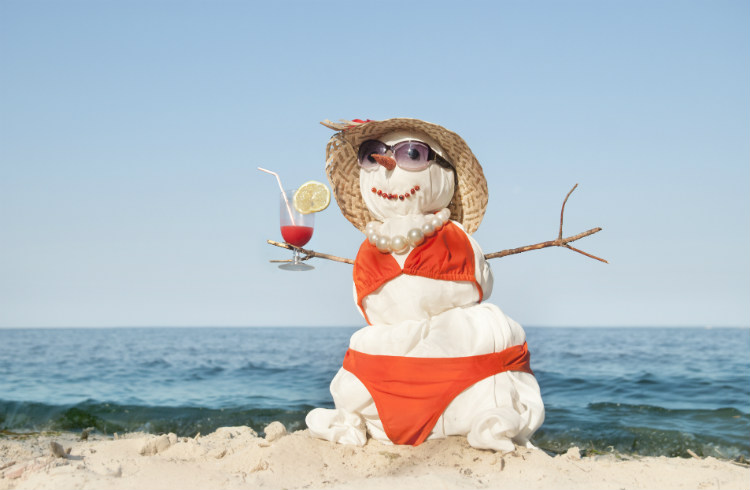
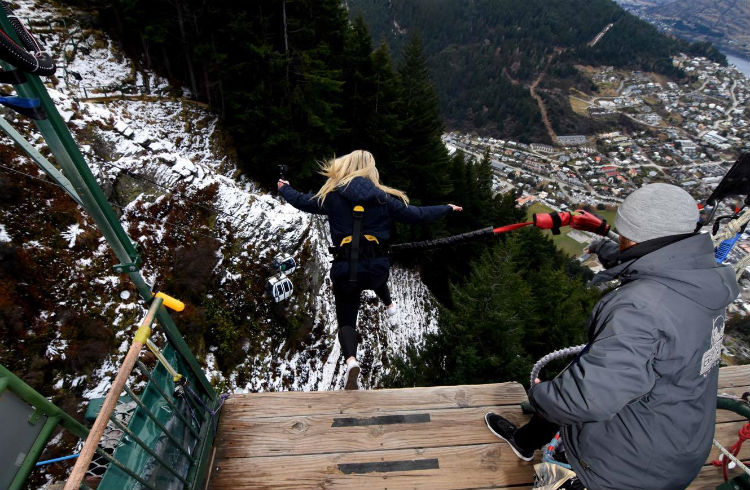
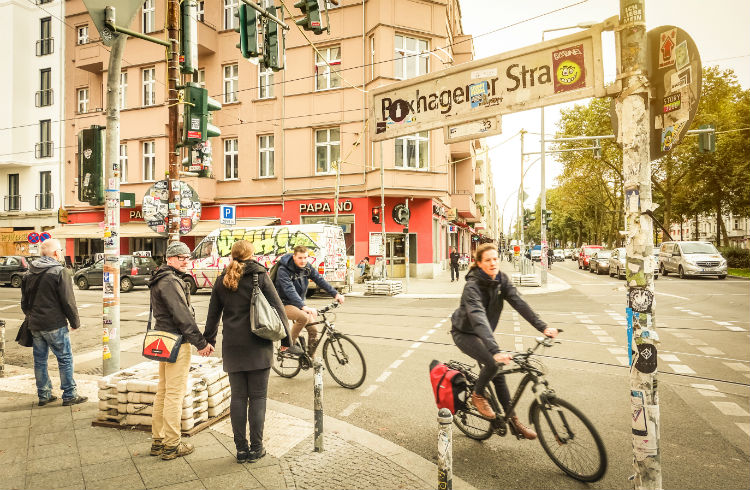
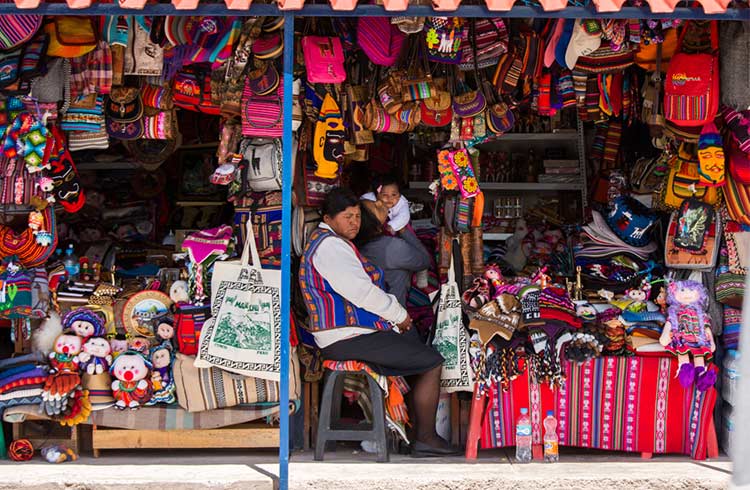
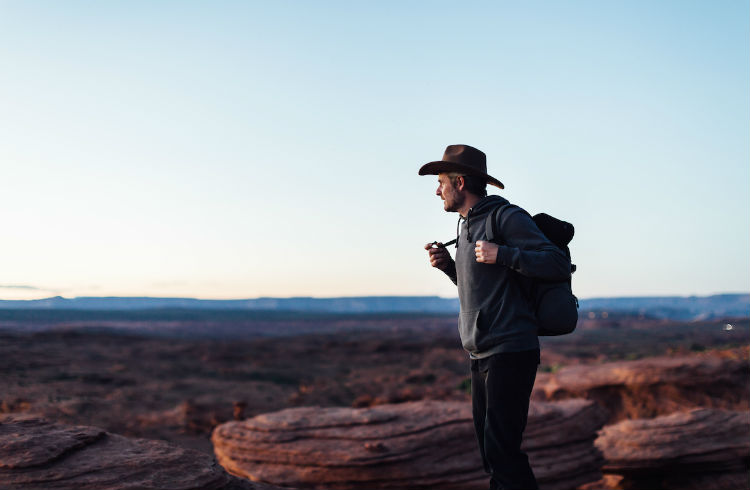
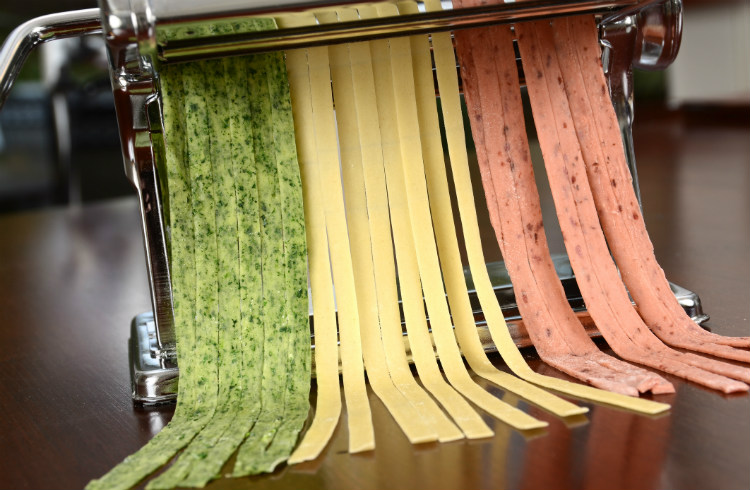
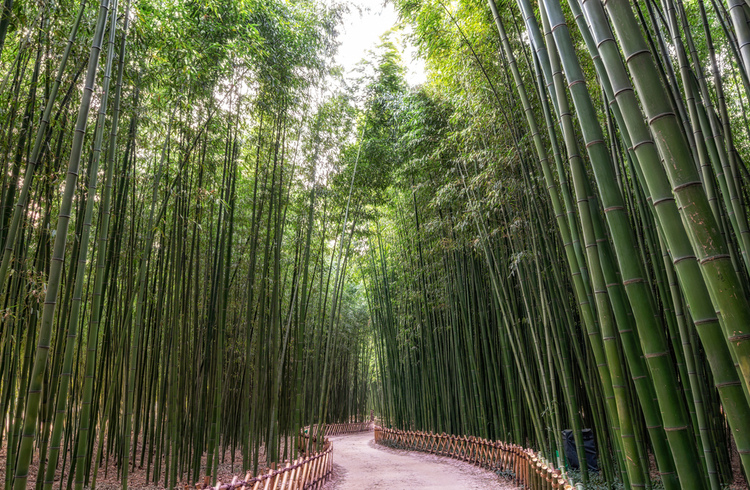
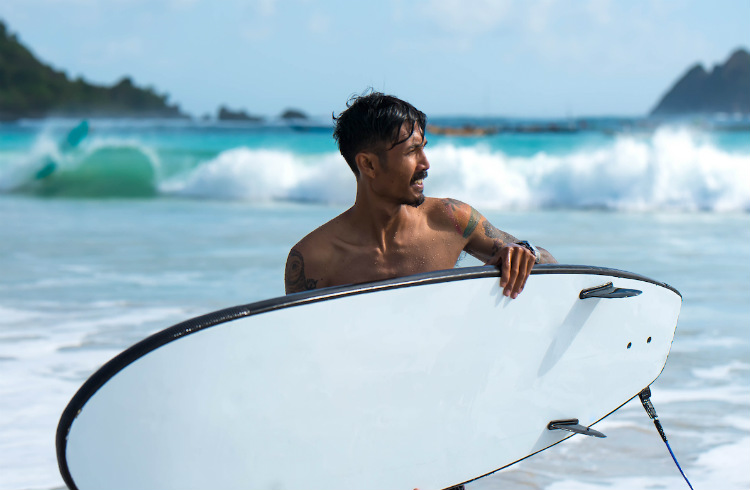
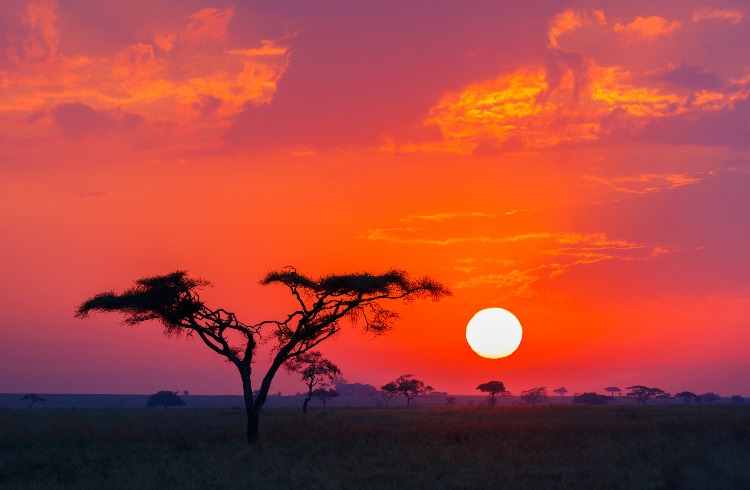
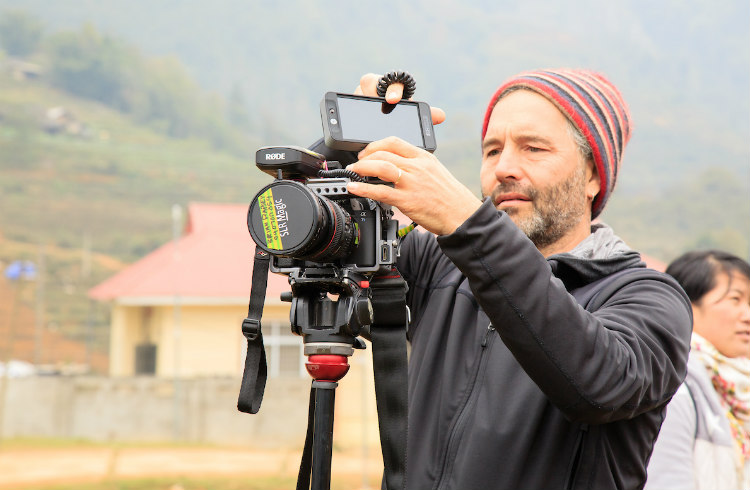
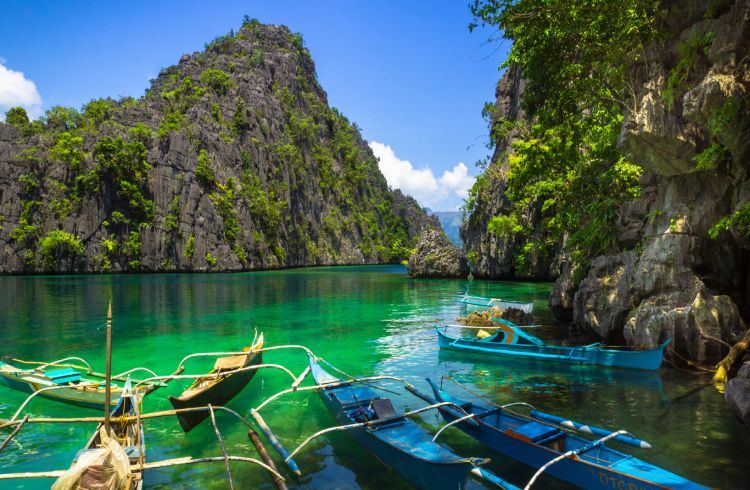
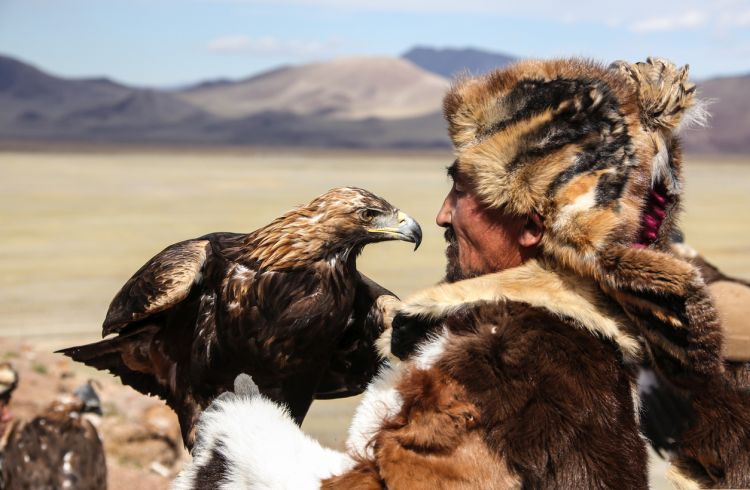
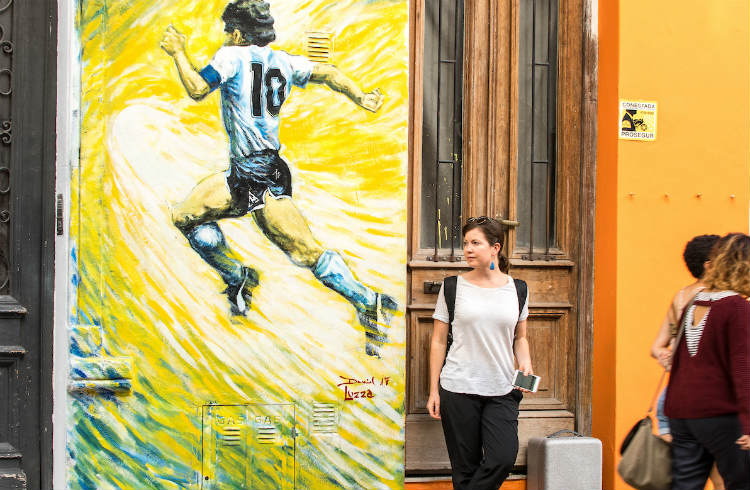
No Comments